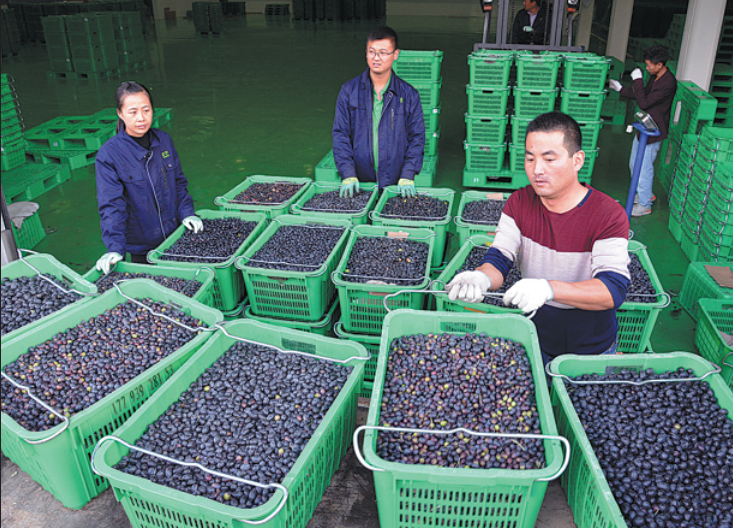Villagers branch out to embrace olive oil riches


Farewell to a dream
When the Liu family's processing plant was launched in 1997, it was the first such facility in China. Xu gave the family the brand name "Xiangyu"-because its pronunciation is the same as Zhou's courtesy title in Mandarin (despite different characters)-free of charge.
The launch prompted great excitement among the farmers. Liu remembers people lining up for more than 2 kilometers to sell olives to the plant.
"Some people carried the fruit on their backs. Some carried it in baskets. Some put containers on tricycles. Some transported the fruit by donkey," she recalled, adding that the crowd was so large that it disrupted traffic.
She said the crowd placed great pressure on the small factory. Some workers lost their voices as a result of constantly talking to potential vendors, while other employees had to work around the clock in three shifts as the olives had to be processed quickly after being picked.
The trade also prevented Liu from following her dream of upholding justice as a lawyer, even though she majored in law at Lanzhou University, the best school in the province.
When she graduated with a bachelor's in 2005, Liu had the opportunity to work at an arbitration court in Shenzhen, Guangdong province.
However, she passed on the chance because her parents desperately needed her help to sell olive oil, which had failed to gain market recognition.
"I made a decision based on filial piety to my parents," said the 39-year-old, who is president of Xiangyu Olive Oil.
She set up a marketing team in Lanzhou, the provincial capital, and didn't consider moving back to Longnan until her father died suddenly on Nov 29, 2011, while purchasing olives.
"He worked continuously for three months. The excessive workload caused heart failure," she said.
An experience in 2013 made her determined to expand the business and help local people escape poverty.
"I was in the factory when a line (of people) more than 2 km long showed up. After discovering that many of the olives being offered by a senior had gone bad, I told him we couldn't accept them," she said.
"He knelt down and begged me, saying his family would have no income at all if he could not sell the fruit."
Eventually, Liu accepted the fruit, even though she had to throw the spoiled olives away. That day, she pledged to improve the plant's processing capability and also optimize the company's picking, collection and processing procedures.
She said some of the fruit offered went bad because of disorderly, unorganized harvesting-sometimes the farmers came to sell their crops "like a swarm of bees", bringing large amounts of fruit that were far beyond the plant's processing capabilities.
























